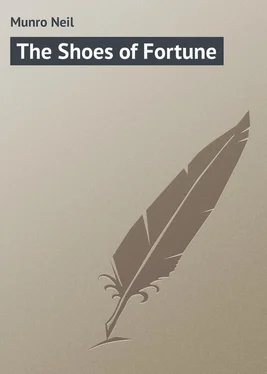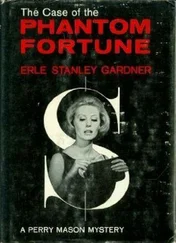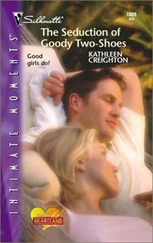Neil Munro - The Shoes of Fortune
Здесь есть возможность читать онлайн «Neil Munro - The Shoes of Fortune» — ознакомительный отрывок электронной книги совершенно бесплатно, а после прочтения отрывка купить полную версию. В некоторых случаях можно слушать аудио, скачать через торрент в формате fb2 и присутствует краткое содержание. ISBN: , Жанр: Прочие приключения, foreign_prose, на английском языке. Описание произведения, (предисловие) а так же отзывы посетителей доступны на портале библиотеки ЛибКат.
- Название:The Shoes of Fortune
- Автор:
- Жанр:
- Год:неизвестен
- ISBN:http://www.gutenberg.org/ebooks/43732
- Рейтинг книги:4 / 5. Голосов: 1
-
Избранное:Добавить в избранное
- Отзывы:
-
Ваша оценка:
- 80
- 1
- 2
- 3
- 4
- 5
The Shoes of Fortune: краткое содержание, описание и аннотация
Предлагаем к чтению аннотацию, описание, краткое содержание или предисловие (зависит от того, что написал сам автор книги «The Shoes of Fortune»). Если вы не нашли необходимую информацию о книге — напишите в комментариях, мы постараемся отыскать её.
The Shoes of Fortune — читать онлайн ознакомительный отрывок
Ниже представлен текст книги, разбитый по страницам. Система сохранения места последней прочитанной страницы, позволяет с удобством читать онлайн бесплатно книгу «The Shoes of Fortune», без необходимости каждый раз заново искать на чём Вы остановились. Поставьте закладку, и сможете в любой момент перейти на страницу, на которой закончили чтение.
Интервал:
Закладка:
Neil Munro
The Shoes of Fortune
CHAPTER I
NARRATES HOW I CAME TO QUIT THE STUDY OF LATIN AND THE LIKE, AND TAKE TO HARD WORK IN A MOORLAND COUNTRY
It is an odd thing, chance – the one element to baffle the logician and make the scheming of the wisest look as foolish in the long run as the sandy citadel a child builds upon the shore without any thought of the incoming tide. A strange thing, chance; and but for chance I might this day be the sheriff of a shire, my head stuffed with the tangled phrase and sentiment of interlocutors, or maybe no more than an advocate overlooked, sitting in John’s Coffeehouse in Edinburgh – a moody soured man with a jug of claret, and cursing the inconsistencies of preferment to office. I might have been that, or less, if it had not been for so trifling a circumstance as the burning of an elderly woman’s batch of scones. Had Mistress Grant a more attentive eye to her Culross griddle, what time the scones for her lodgers, breakfast were a-baking forty years ago, I would never have fled furth my native land in a mortal terror of the gallows: had her griddle, say, been higher on the swee-chain by a link or two, Paul Greig would never have foregathered with Dan Risk, the blackguard skipper of a notorious craft; nor pined in a foreign jail; nor connived, unwitting, at a prince’s murder; nor marched the weary leagues of France and fought there on a beggar’s wage. And this is not all that hung that long-gone day upon a woman’s stair-head gossip to the neglect of her cuisine , for had this woman been more diligent at her baking I had probably never seen my Isobel with a lover’s eye.
Well, here’s one who can rarely regret the past except that it is gone. It was hard, it was cruel often; dangers the most curious and unexpected beset me, and I got an insight to deep villainies whereof man may be capable; yet on my word, if I had the parcelling out of a second life for myself, I think I would have it not greatly differing from the first, that seems in God’s providence like to end in the parish where it started, among kent and friendly folk. I would not swear to it, yet I fancy I would have Lucky Grant again gossiping on her stair-head and her scones burned black, that Mackellar, my fellow-lodger, might make me once more, as he used to do, the instrument of his malcontent.
I mind, as it were yesterday, his gloomy look at the platter that morn’s morning. “Here they are again!” cried he, “fired to a cinder; it’s always that with the old wife, or else a heart of dough. For a bawbee I would throw them in her face.”
“Well, not so much as that.” said I, “though it is mighty provoking.”
“I’m not thinking of myself,” said he, always glooming at the platter with his dark, wild Hielan’ eye. “I’m not thinking of myself,” said he, “but it’s something by way of an insult to you, that had to complain of Sunday’s haddocks.”
“Oh, as to them,” quo’ I, “they did brawly for me; ‘twas you put your share in your pocket and threw it away on the Green. Besides the scones are not so bad as they look” – I broke one and ate; “they’re owre good at least for a hungry man like me to send back where they came from.”
His face got red. “What’s that rubbish about the haddocks and the Green?” said he. “You left me at my breakfast when you went to the Ram’s Horn Kirk.”
“And that’s true, Jock,” said I; “but I think I have made no’ so bad a guess. You were feared to affront the landlady by leaving her ancient fish on the ashet, and you egged me on to do the grumbling.”
“Well, it’s as sure as death, Paul,” said he shamefacedly, “I hate to vex a woman. And you’re a thought wrong in your guess” – he laughed at his own humour as he said it – “for when you were gone to your kirk I transferred my share of the stinking fish to your empty plate.”
He jouked his head, but scarcely quick enough, for my Sallust caught him on the ear. He replied with a volume of Buchanan the historian, the man I like because he skelped the Lord’s anointed, James the First, and for a time there was war in Lucky Grant’s parlour room, till I threw him into the recess bed snibbed the door, and went abroad into the street leaving my room-fellow for once to utter his own complaints.
I went out with the itch of battle on me, and that was the consequence of a woman’s havering while scones burned, and likewise my undoing, for the High Street when I came to it was in the yeasty ferment of encountering hosts, their cries calling poor foolish Paul Greig like a trumpet.
It had been a night and morning of snow, though I and Mackellar, so high in Lucky Grant’s chamber in Crombie’s Land, had not suspected it. The dull drab streets, with their crazy, corbelled gable-ends, had been transformed by a silent miracle of heaven into something new and clean; where noisome gutters were wont to brim with slops there was the napkin of the Lord.
For ordinary I hated this town of my banishment; hated its tun-bellied Virginian merchants, so constantly airing themselves upon the Tontine piazza and seeming to suffer from prosperity as from a disease; and felt no great love of its women – always so much the madame to a drab-coated lad from the moorlands; suffered from its greed and stifled with the stinks of it. “Gardyloo! Gardyloo! Gardyloo!” Faith! I hear that evening slogan yet, and see the daunderers on the Rottenrow skurry like rats into the closes to escape the cascades from the attic windows. And while I think I loved learning (when it was not too ill to come by), and was doing not so bad in my Humanities, the carven gateway of the college in my two sessions of a scholar’s fare never but scowled upon me as I entered.
But the snow that morning made of the city a place wherein it was good to be young, warm-clad, and hardy. It silenced the customary traffic of the street, it gave the morning bells a song of fairydom and the valleys of dream; up by-ordinary tall and clean-cut rose the crow-stepped walls, the chimney heads, and steeples, and I clean forgot my constant fancy for the hill of Ballageich and the heather all about it. And war raged. The students faced ‘prentice lads and the journeymen of the crafts with volleys of snowballs; the merchants in the little booths ran out tremulous and vainly cried the watch. Charge was made and counter-charge; the air was thick with missiles, and close at hand the silver bells had their merry sweet chime high over the city of my banishment drowned by the voices taunting and defiant.
Merry was that day, but doleful was the end of it, for in the fight I smote with a snowball one of the bailies of the burgh, who had come waving his three-cocked hat with the pomp and confidence of an elected man and ordering an instant stoppage of our war: he made more ado about the dignity of his office than the breakage of his spectacles, and I was haled before my masters, where I fear I was not so penitent as prudence would advise.
Two days later my father came in upon Dawson’s cart to convoy me home. He saw the Principal, he saw the regents of the college, and up, somewhat clashed and melancholy, he climbed to my lodging. Mackellar fled before his face as it had been the face of the Medusa.
“Well, Paul,” said my father, “it seems we made a mistake about your birthday.”
“Did you?” said I, without meaning, for I knew he was ironical.
“It would seem so, at any rate,” said he, not looking my airt at all, but sideways to the window and a tremor in his voice. “When your mother packed your washing last Wednesday and slipped the siller I was not supposed to see into a stocking-foot, she said, ‘Now he’s twenty and the worst of it over.’ Poor woman! she was sadly out of her reckoning. I’m thinking I have here but a bairn of ten. You should still be at the dominie’s.”
Читать дальшеИнтервал:
Закладка:
Похожие книги на «The Shoes of Fortune»
Представляем Вашему вниманию похожие книги на «The Shoes of Fortune» списком для выбора. Мы отобрали схожую по названию и смыслу литературу в надежде предоставить читателям больше вариантов отыскать новые, интересные, ещё непрочитанные произведения.
Обсуждение, отзывы о книге «The Shoes of Fortune» и просто собственные мнения читателей. Оставьте ваши комментарии, напишите, что Вы думаете о произведении, его смысле или главных героях. Укажите что конкретно понравилось, а что нет, и почему Вы так считаете.












